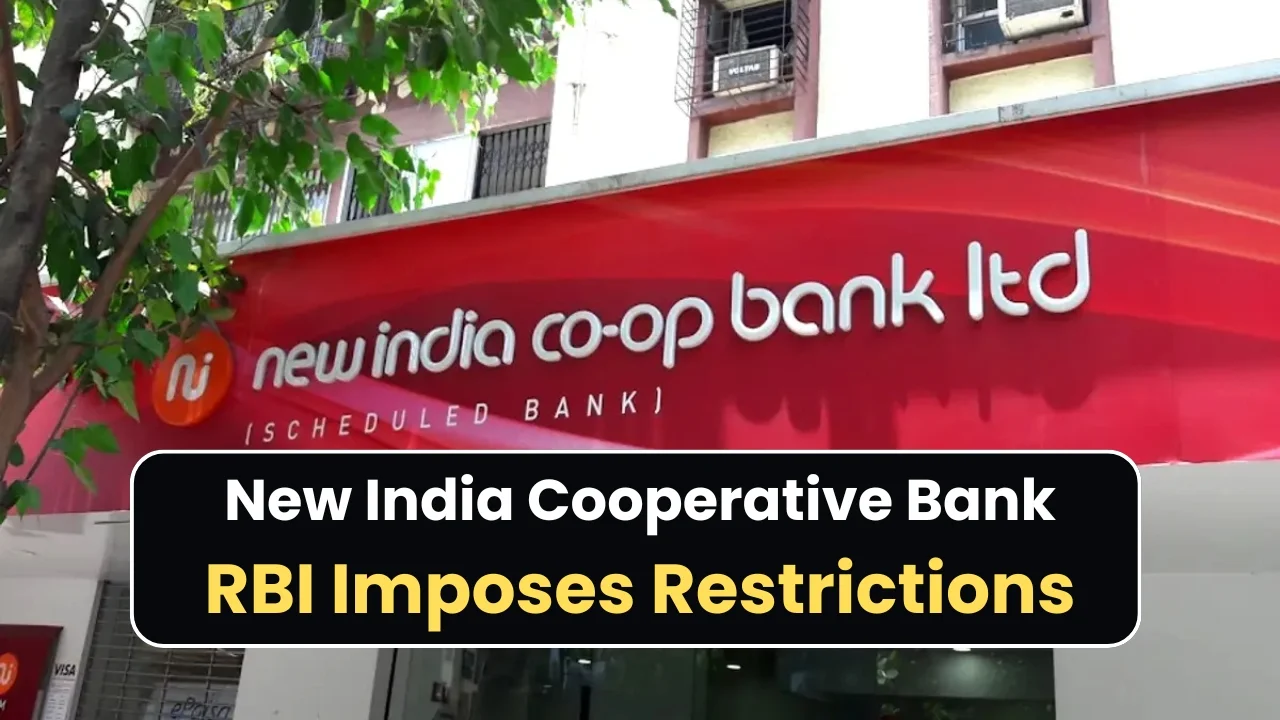The Reserve Bank of India (RBI) has imposed restrictions on the New India Cooperative Bank in Mumbai due to liquidity issues and supervisory concerns. These restrictions, effective from February 13, 2025, will remain in place for six months. The decision has raised concerns among customers, especially as withdrawals are currently not allowed.
Restrictions on Banking Operations
The RBI has barred the New India Cooperative Bank from issuing new loans, renewing advances, accepting fresh deposits, and allowing withdrawals. The bank also cannot make investments, incur liabilities, or transfer assets without RBI approval. However, essential expenditures such as employee salaries, rent, and electricity bills are permitted.
These restrictions are intended to protect depositors’ interests while the RBI continues to monitor the bank’s financial condition. While the bank’s license has not been revoked, the central bank has stated that further actions may be taken if necessary.
Reasons Behind the RBI’s Action
The restrictions were imposed due to “recent material developments” at the bank. The RBI identified liquidity concerns and supervisory issues that could impact the financial stability of the institution. The New India Co-operative Bank has been struggling with losses for the past two financial years.
In the financial year ending March 2024, the bank recorded a loss of ₹23 crore, following a loss of ₹31 crore in 2023. Despite an increase in deposits from ₹2,406 crore to ₹2,436 crore, advances dropped from ₹1,330 crore to ₹1,175 crore as of March 31, 2024.
Impact on Customers and Depositors
The biggest concern for customers is the inability to withdraw their money. The sudden announcement of restrictions has caused panic among account holders, many of whom are uncertain about when they will be able to access their funds.
However, there is some relief for eligible depositors. Under the Deposit Insurance and Credit Guarantee Corporation (DICGC) scheme, depositors can claim insurance amounts of up to ₹5 lakh. This ensures that at least a portion of their savings is secure despite the bank’s restrictions.
What’s Next for the Bank?
The RBI has clarified that the restrictions do not mean the bank’s license has been canceled. Instead, the central bank will review the situation and decide on further action. If the bank manages to improve its financial position, some restrictions could be lifted before the six-month period ends.
The New India Cooperative Bank news highlights the ongoing challenges in India’s cooperative banking sector. The RBI has placed similar restrictions on struggling cooperative banks in the past, emphasizing the importance of financial stability and compliance with banking regulations.
Final Thoughts
With the New India Cooperative Bank news making headlines, depositors and customers remain anxious about their money. While deposit insurance provides some relief, the inability to withdraw funds has caused distress. The next few months will be crucial as the RBI continues to monitor the bank’s situation and determine its future.
